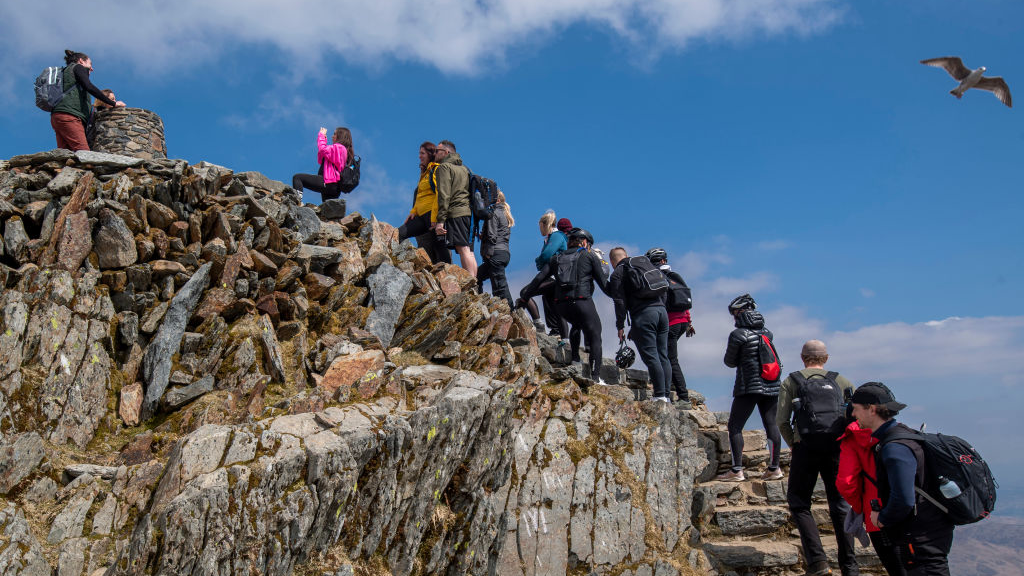“It’s not really a climbing film” – why the Devil’s Climb with Alex Honnold and Tommy Caldwell isn't what you think
The Devil’s Thumb sees the duo complete the first-ever single-day traverse of all five peaks of Alaska’s Devil’s Thumb massif – but it’s also more than that
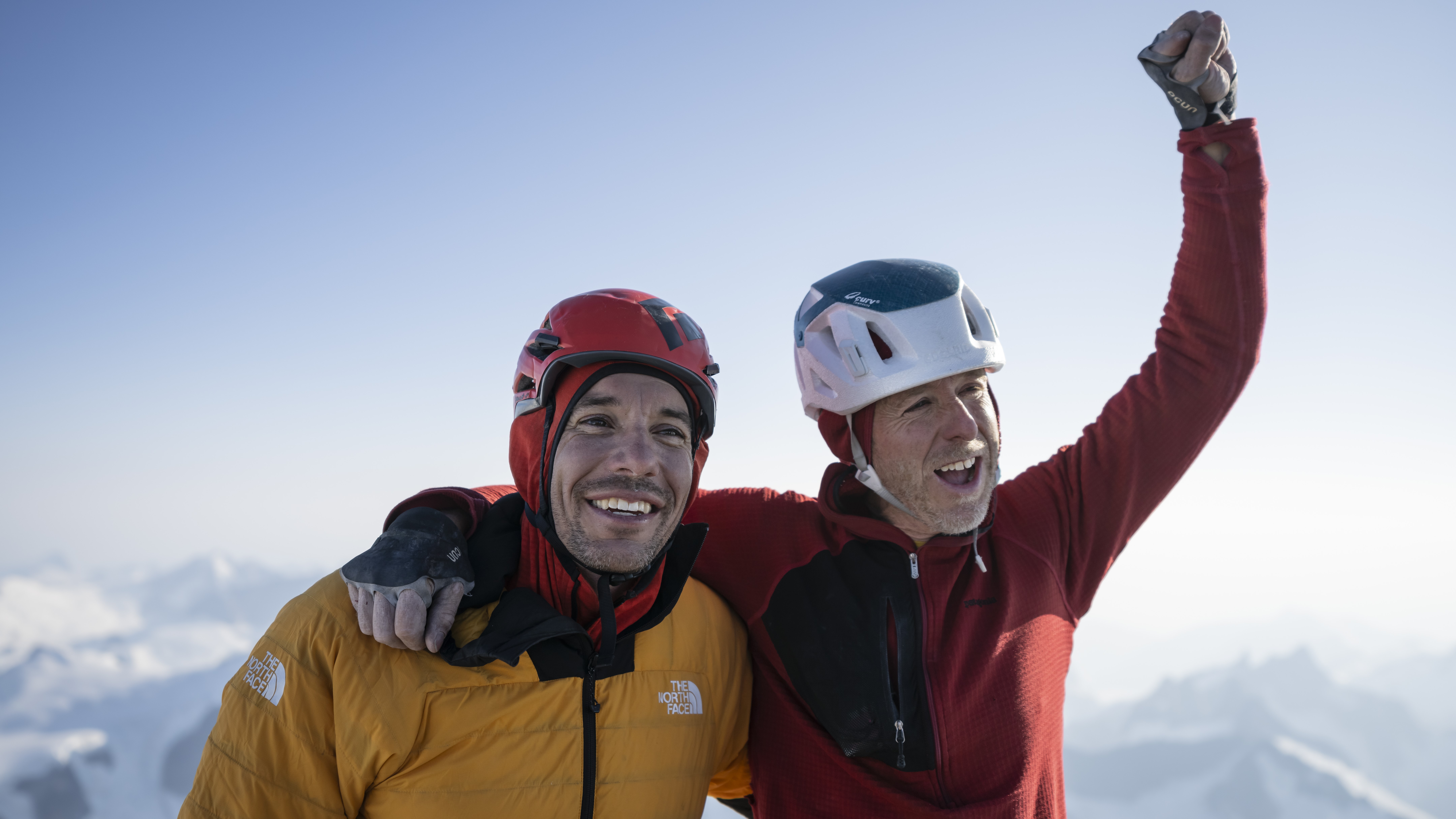
For most of us who love the outdoors, Alex Honnold and Tommy Caldwell need no introduction. For the rest of you, they’re two of the greatest rock climbers of all time and between them are responsible for two of the best climbing films ever made: Free Solo and Dawn Wall.
So when I heard that the pair – who are also close friends – were teaming up for a joint expedition to climb another as-yet-unconquered face and make a film about it, I figured I already knew what it would be. Two climbing greats doing something that’s never been done, hopefully a moment of extreme peril where everything hangs in the balance and perhaps a glimpse into life in the van. But the Devil’s Climb is something a bit different.
“You don’t even have to be interested in climbing, really, to appreciate this film because this is the story of two partners seeking out a big adventure and having an experience together,” Honnold tells me.
“The climbing is impressive and certainly really, really scenic but it’s not really a climbing film I don't think. It’s the kind of thing I could imagine my grandmother watching and really enjoying it.”
To be fair, neither of his grandmothers is with us anymore, but I get his point – there’s more to this film than nail-biting high drama, despite the sinister backdrop and the high stakes, and yet it’s subtler than their previous film projects.
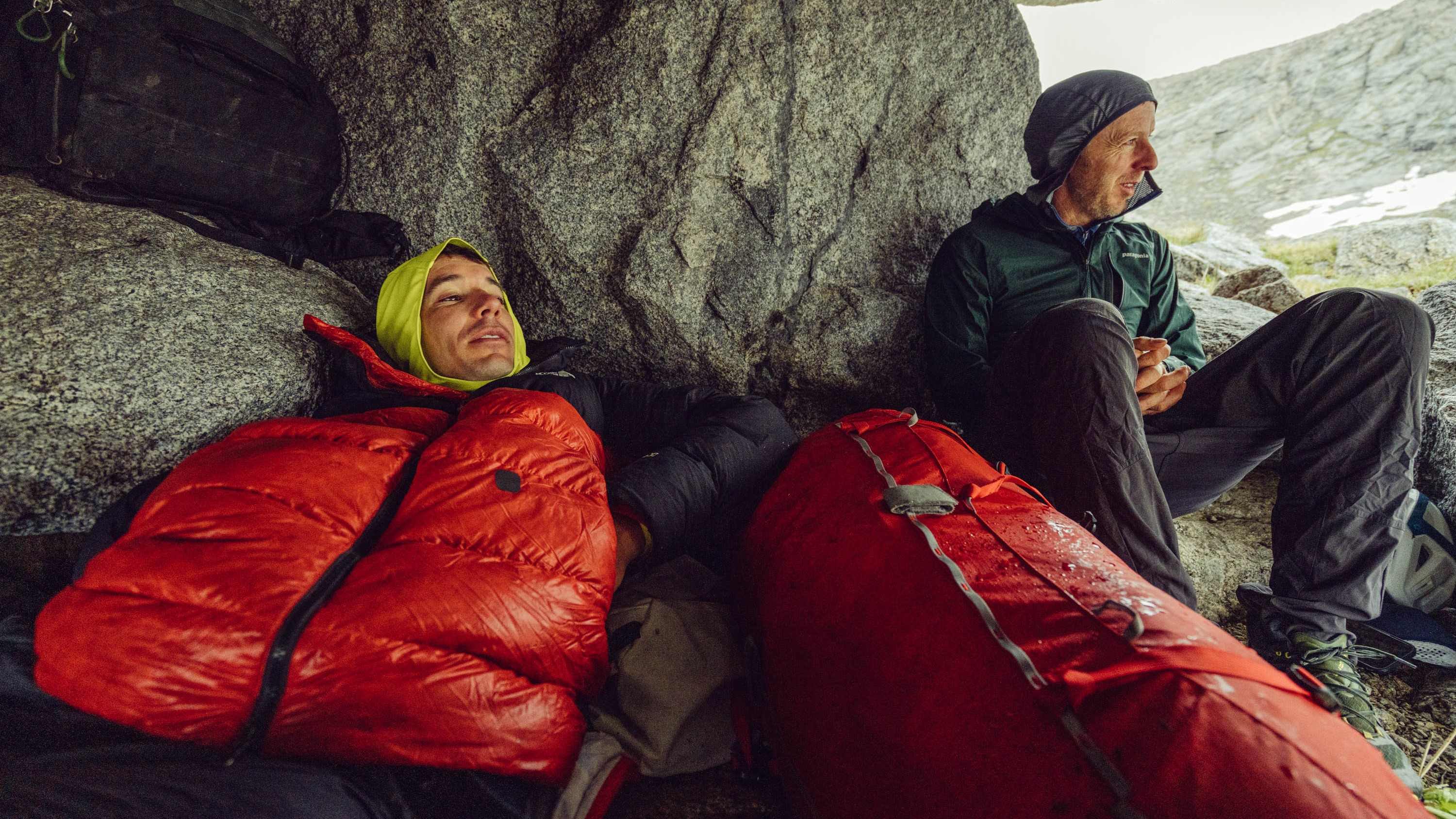
Directed by fellow climber Renan Ozturk, of Meru fame, the Devil’s Thumb sees the duo complete the first-ever single-day traverse of all five peaks of Alaska’s Devil’s Thumb massif. That includes the biggest alpine face in North America, which until last year had never been climbed. In fact, only a few had attempted it – including Jon Krakauer in 1977 as described in his book Eiger Dreams – and a lot of them died trying.
On paper, the Devil’s Climb hits all the usual notes. The group of striking peaks on the western edge of the Stikine Icecap provides an appropriately sensational backdrop to the action and more than enough challenge for the two climbers – but you won’t even see them get on belay until 50 minutes into the 75-minute documentary.
Advnture Newsletter
All the latest inspiration, tips and guides to help you plan your next Advnture!
“It highlights the things that we've always loved about climbing which climbers almost take for granted a little bit, so they'll be slightly less struck by the film,” says Caldwell, who thinks non-climbers will probably enjoy the film even more than climbers.
“If you're not a climber at all you're gonna see the friendship, you’re gonna see the beauty, you’re gonna see the adventure.”

If you’re hoping for knife-edge thrills akin to Honnold pulling off the crux move on a 3,000-foot-tall sheer rock wall without protective gear or Caldwell getting taken hostage in Kyrgyzstan, you’ll need to adjust your expectations a bit before you sit down to watch this film, because the two climbers now agree that the most dangerous part of this expedition was the approach.
“In a lot of ways this expedition was relatively safe. Biking on the highway the whole way was probably the scariest thing and the most dangerous thing we did,” says Honnold.
From Caldwell’s home in Colorado, it’s 2,600 miles to the Devil’s Thumb, and he envisioned the expedition as a conservation project, so he proposed making already difficult expedition harder by cycling there on a pair of Specialized gravel bikes. That turned out to entail 50 days of pedalling, sailing and gruelling hiking across the West, which depending on who you ask was great training or a “total waste” of time and energy.
“For me, it was great because my climbing ability was so low after being injured for so long,” says Caldwell, who spent the last couple of years rehabbing a torn (and repeatedly re-ruptured) Achilles tendon. Just a year ago, he reported that he'd been unable to send the Heart Route in Yosemite with Honnold, but over the course of the approach, he started to feel like his old self again.
“As we were bike riding I just got stronger and felt more robust, but my climbing ability had so far to go up at the point.”
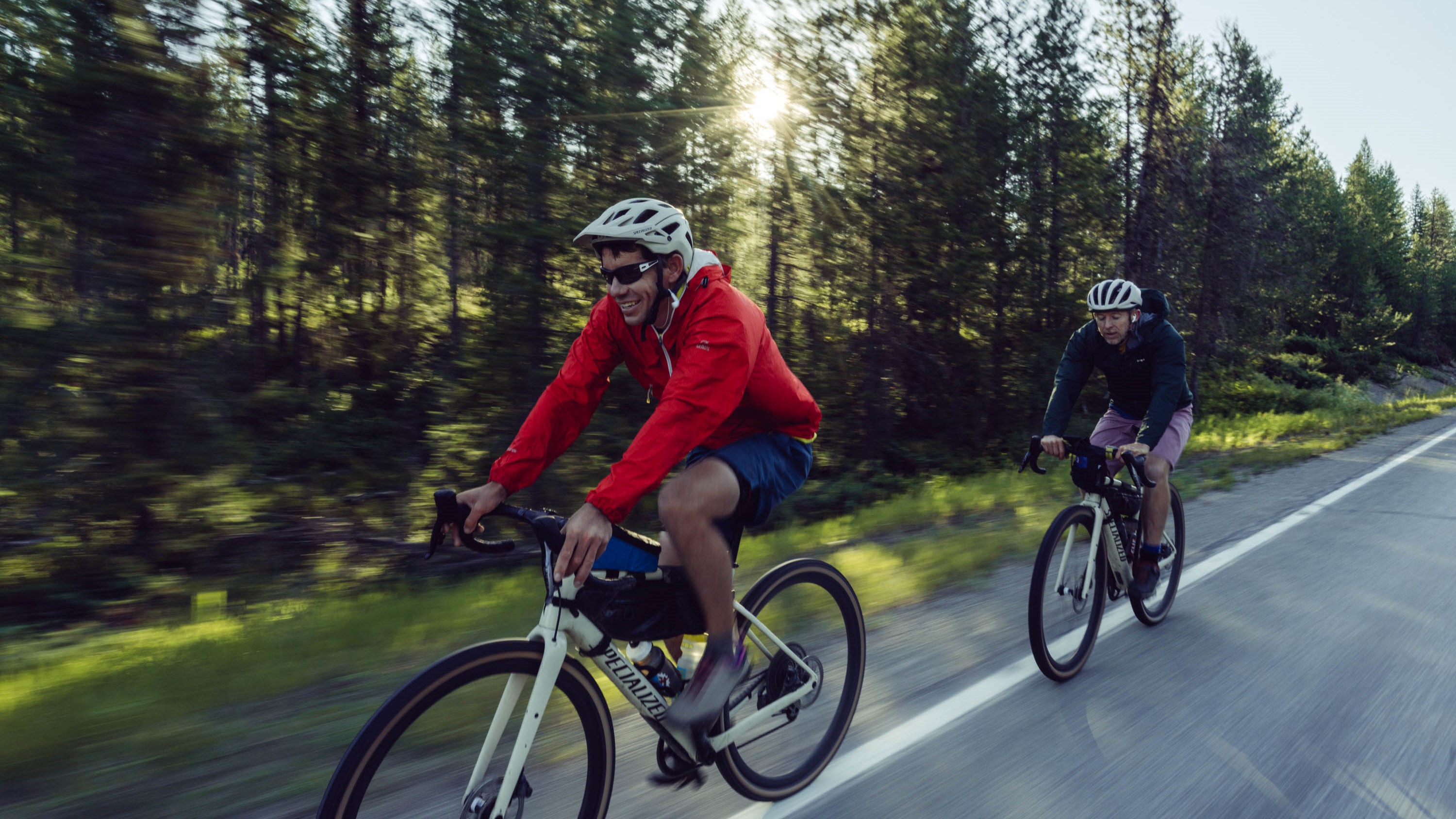
Meanwhile, Honnold, who was coming off several years of climbing at the highest level says he found the bike ride “depressing.”
“I kind of thought that we were going to be going through interior BC, like untravelled wilderness and the reality is that it’s all logged, there are trucks non-stop. It’s like heavy human impact.”
In retrospect, Caldwell admits that they didn’t plan the bike ride all that well, but that 2,600-mile bike ride shared between one friend who was severely out of shape and another at their physical peak turned out to be a great equalizer.
“I didn’t recover the whole time. I got worse and worse literally the whole trip, which was crazy because Tommy was doing great and he was thriving,” says Honnold.
By the end of the expedition, the pair just about met each other in the middle in terms of fitness and climbing ability and when they finally begin their 24-hour push, it’s all, well, pretty smooth.

There are no angst-ridden monologues about what happens if they fall and die during the climb like we were exposed to in Free Solo, even though touching scenes with family at the beginning remind us of what would be at stake if that were to happen. But for one quickly corrected detour and some windy conditions, there’s no exceptional circumstances that increase the risk level.
Caldwell leads the majority of the climbing – something Honnold says he was pretty happy about, because it meant he could stay in his “more comfortable” approach shoes – and at the last summit, the pair even have time to soak up the views and chat.
If all of this is sounding a little dull, trust me, it’s a pleasure to watch. Instead of wondering if the men are going to meet a grisly end, you can enjoy the quirky personalities of two climbers (mostly) in their element, and get an often-entertaining glimpse into the nature of their relationship, which is painted here by Ozturk as a Grumpy vs Happy dynamic.
We see Honnold face down with seasickness while Caldwell merrily takes the helm in choppy waters. Then there’s Caldwell cycling off up the trail after Honnold is crowded by fans who apparently have no idea they’re in the midst of not just one but two heroes. And Honnold looking unimpressed or doing pull-ups on a boat crossing while Caldwell enthusiastically watches whales jumping.
“I’m realizing he just needs to pull hard on small holds all the time to feel right in the world,” quips Caldwell.
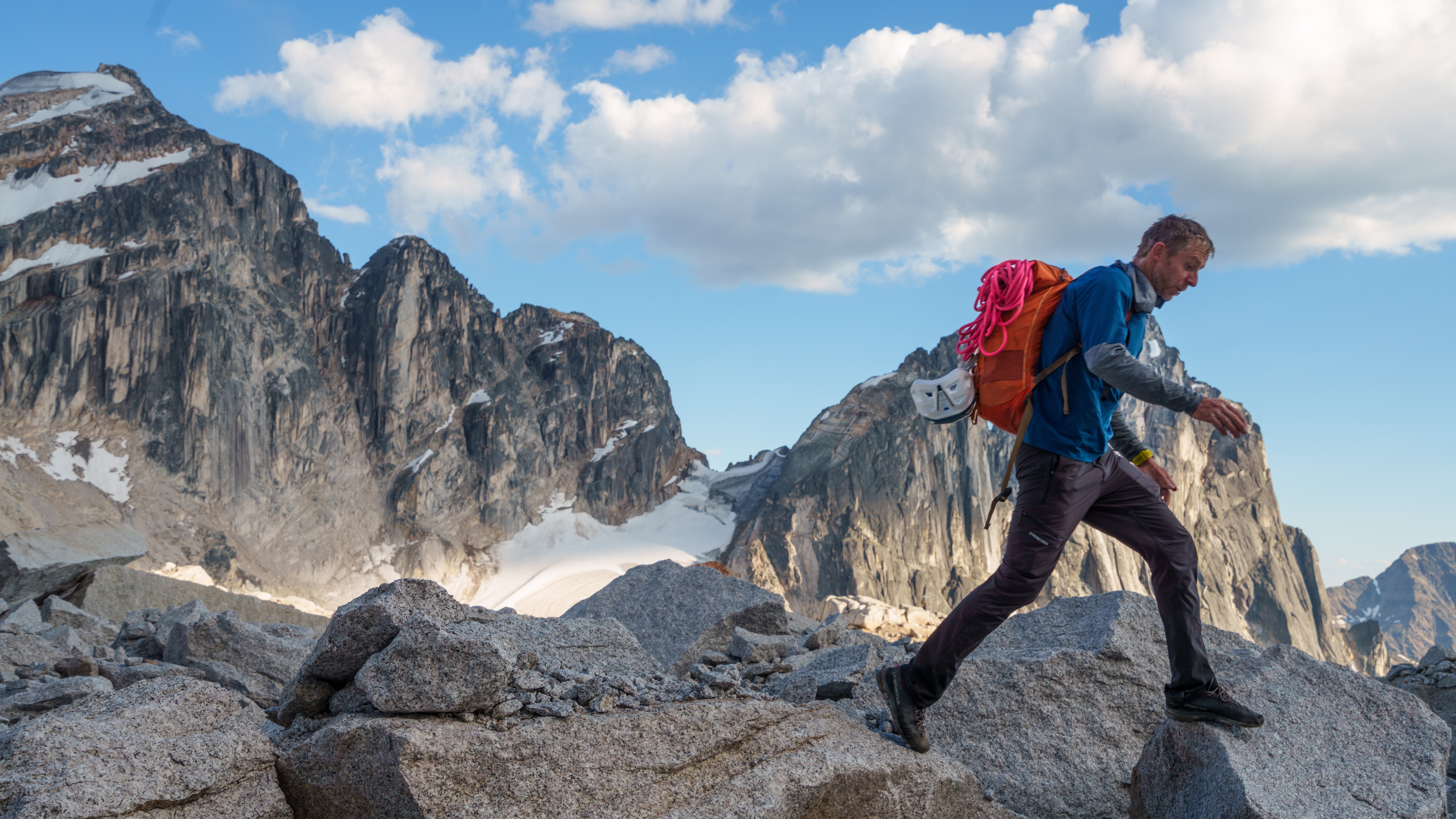
You do start to wonder if the pair is really cut out to be climbing partners, where trust and communication are easily as important as fitness and skill. But when I probe them on this, they insist that despite their opposing exteriors, they’re far more similar than they are different.
“I think that’s part of the reason that our climbing partnership has been so good over the years,” says Honnold, who describes them as “pretty interchangeable” on the wall.
“In general, we’re more similar to each other than any other climbers we could climb with.”
Both men likely have many more years of climbing in them and it’s even possible they’ll have more first ascents worth of documentation. But right now, they also have nothing left to prove. They’ve got four young children at home between the two of them. They’ve earned the right to just go and have a really fun expedition without raising anyone’s cortisol levels and maybe all that’s left to tell is the story of their friendship.
“There’s incredible joy in the midst of adversity and Alex brings that out in a way that nobody else I’ve climbed with does," says Caldwell.
"We could be suffering and laughing at the same time and that brings the magic."
The Devil's Climb premieres October 17 at 9 p.m. eastern on National Geographic and streams the next day on Disney+ and Hulu.
Julia Clarke is a staff writer for Advnture.com and the author of the book Restorative Yoga for Beginners. She loves to explore mountains on foot, bike, skis and belay and then recover on the the yoga mat. Julia graduated with a degree in journalism in 2004 and spent eight years working as a radio presenter in Kansas City, Vermont, Boston and New York City before discovering the joys of the Rocky Mountains. She then detoured west to Colorado and enjoyed 11 years teaching yoga in Vail before returning to her hometown of Glasgow, Scotland in 2020 to focus on family and writing.

